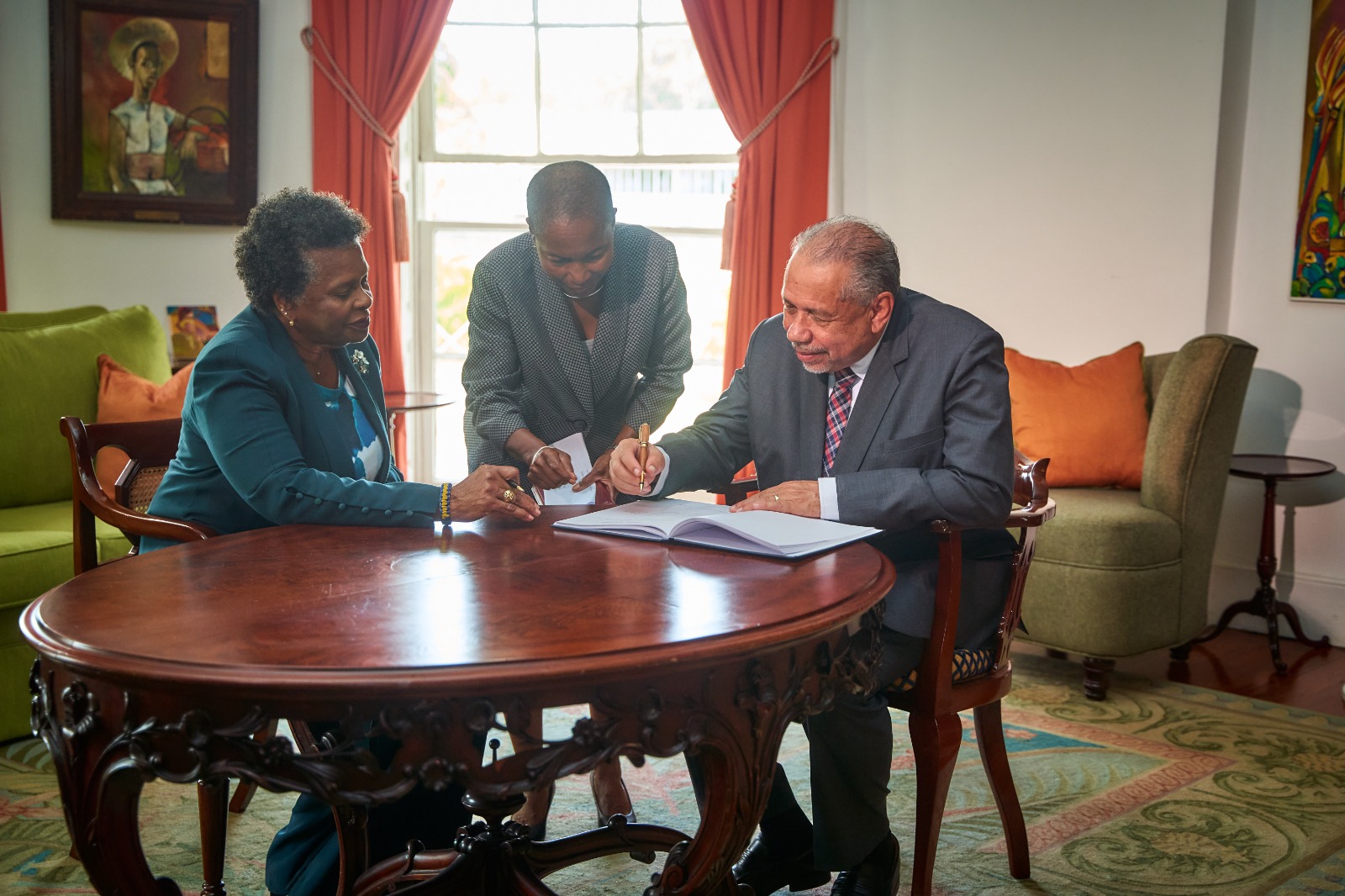Reproduced from the IMF Website – David, Blogmaster
December 9, 2020
- The Executive Board of the IMF concluded the fourth review of the IMF’s extended arrangement under the Extended Fund Facility (EFF) for Barbados. The completion of the review allows the authorities to draw SDR 65 million (about US$94 million). Access under the extended arrangement has been augmented by SDR 48 million (51 percent of quota, or about US$69 million) to help accommodate the shock.
- Despite the challenges posed on the economy by the pandemic, Barbados continues its strong implementation of the comprehensive Economic Recovery and Transformation (BERT) plan aimed at restoring fiscal and debt sustainability and increasing reserves and growth.
- The prolonged global coronavirus pandemic poses a major challenge for the economy, which is heavily dependent on tourism, and is expected to have a large impact on the balance of payments and the fiscal accounts.
Washington, DC: The Executive Board of the International Monetary Fund (IMF) concluded the fourth review of the IMF’s extended arrangement under the Extended Fund Facility (EFF) for Barbados. The completion of the review allows the authorities to draw the equivalent of SDR 65 million (about US$94 million), bringing total disbursements to the equivalent of SDR 271 million (about US$390 million).
The four-year extended arrangement under the EFF was approved on October 1, 2018 (see Press Release No. 18/370). Including the augmentation approved by the Executive Board today, the extended arrangement is for an amount equivalent of SDR 322 million (about US$464 million).
Barbados continues its strong implementation of the comprehensive Economic Recovery and Transformation (BERT) plan aimed at restoring fiscal and debt sustainability and increasing reserves and growth. The prolonged global coronavirus pandemic poses a major challenge for the economy, which is heavily dependent on tourism, and is expected to have a large impact on the balance of payments and the fiscal accounts.
Following the Executive Board discussion, Mr. Tao Zhang, Deputy Managing Director and Acting Chair said:
“The Barbadian authorities continue to make excellent progress in implementing their Fund-supported Economic Recovery and Transformation plan and have swiftly responded to address the impact of the pandemic . Prospects for continued strong program performance are good, but downside risks will continue to pose challenges in the period ahead.
“A primary balance target of minus 1 percent of GDP for fiscal year 2020/21, revised down from a surplus of 1 percent at the time of the third review, is appropriate to accommodate worse-than-anticipated revenue losses and support spending on public health and social protection. The new fiscal target is financed by additional resources from international financial institutions, including a second augmentation under the Extended Fund Facility.
“The fiscal accommodation will be compensated by higher primary surpluses in the medium term to ensure achievement of the long-term debt target of 60 percent of GDP. Medium-term fiscal adjustment will be supported by continued reform of state-owned enterprises (SOE) to secure space for investment in physical and human capital. Transfers to SOEs need to decline through a combination of stronger oversight, cost reduction, revenue enhancement, and mergers and divestment. Pension reform and introduction of a fiscal rule will also support medium-term fiscal sustainability.
“Progress in restoring fiscal sustainability will further be safeguarded by a new central bank law aimed at limiting financing of the government and strengthening the central bank’s mandate, autonomy, and decision-making structures.
“A strong recovery from the global pandemic will hinge on accelerating structural reform, including improving the business climate and promoting economic diversification. Strengthening resilience to natural disasters and climate change will be key to long-term sustained economic growth.”




The blogmaster invites you to join the discussion.